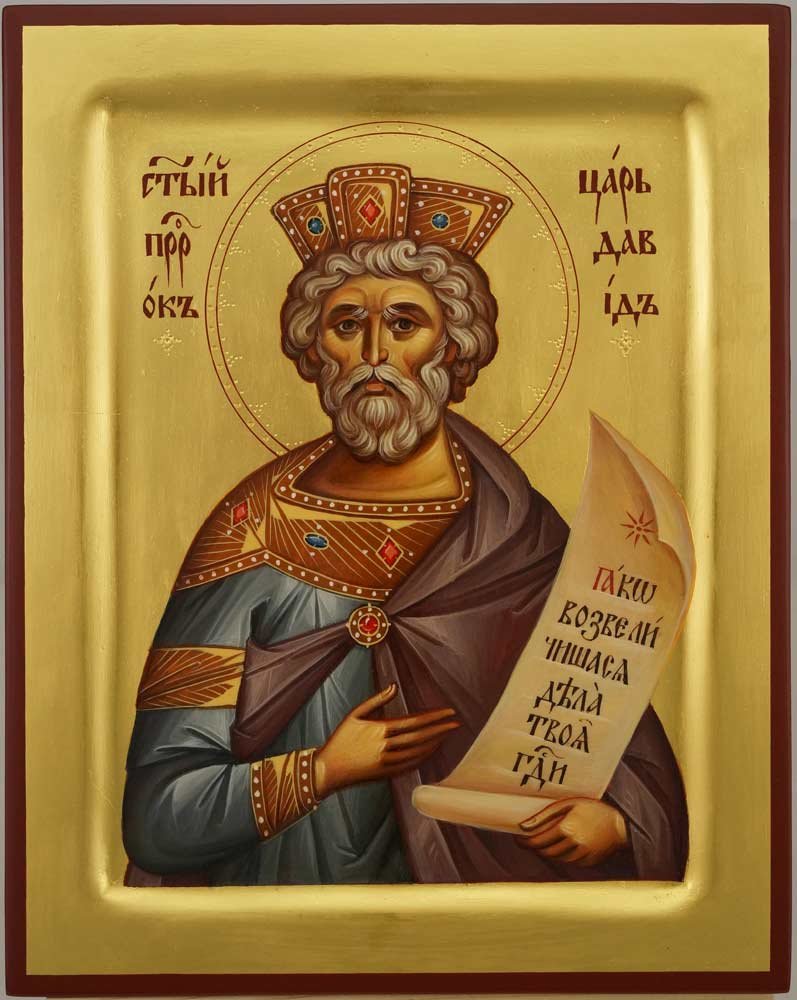Chileab (כִּלְאָב): The second son of David by Abigail—after Amnon & before Absalom—lost to historical account yet one who from his change of name became the “image” of his Messianic “father”
[Reading Time: 5 minutes]
This may be one of our shortest word studies as it is only used 1x in the OT. To better understand it, however, after briefly examining the etymology, we will spend more time looking at the historical background before concluding with a potential reason as to why the name of this second son of David is changed from Daniel (given in II Chron 3:1) to Chileab (in II Sam 3:3).
Chil'āḇ (כִּלְאָב)
Etymology and Dictionary Definition
From kālā (כָּלָא) + āḇ (אָב [from which is derived the word in Aramaic, Greek and Latin, “abba”):
As such, the name means literally to be “closed” and “restrained” into the “finished” image of the “father”
Or, more simply, “like the father.”
Only occurrence in the OT
Historical Background
Chileab, as we know from the historical account, was the “second son” of David after Ammon, who was the firstborn “of Ahinoam the Jezreelitess” and before Absalom from “Maacah the daughter of Talmai king of Geshur” (II Sam 3:2-3).
And his mother we also know well: “Abigail the wife of Nabal the Carmelite” (II Sam 3:3), who is presented in the Scriptures as a picture of astonishing honor, and yet humility, as revealed in her dealings with David in relation to the foolishness of Nabal, who is spoken of as a “son of Belial” (cf. I Sam 25:2-42).
What, then, happened to her Abigail’s son? To what honor did he obtain? What depths of humility?
Well, we know of the first son, Amnon, who would have been king but rapes his sister, Tamar, and is then murdered by Absalom (cf. II Sam 13). So Chileab’s older brother, driven to an extremity of lust, commits incest and rape, with his actions being later revenged by the murderous rage of his younger brother, Absolom.
And so we know his younger brother, Absalom, well, who will be given a lengthy treatment from when he first appears in II Samuel 13 to his conspiracy against David, the ensuing civil war and his final death in II Sam 19, which, we might add, occurs by the vanity of his hair (cf. II Sam 14:25-26), by which he is “caught in the terebinth so that he was left hanging between heaven and earth”—a fascinating image of human glory and eternal judgment—in the limbo of which his heart was finally thrust through by the spear of Joab (II Sam 18:1-18).
And finally, we know as well of his second younger brother, Adonijah, the “fourth” son of David, who will later claim the throne for himself, acting in the exact same, vain fashion of his deceased brother, Absalom, declaring, “I will be king” and “preparing chariots and horsemen and fifty men to run before him” (I Kings 1:5, cf. I Sam 15:1), only to himself be murdered by the order of Solomon, a younger, younger brother to Chileab (I Kings 2:24-25).
And so, given the depths of depravity of his older and younger brothers which is painfully outlined for us in the Scripture account, what is it that we can learn of Chileab, who, for all intents and purposes, is absent from the historical record?
An insight from the name change
From the account offered in I Chron 3:1, Chileab’s birth name was orginally Daniel at birth, a name derived from the two Hebrew words: Dan (דָּן) that means “judge”, + El (אֵל), one of the primary words for “God.” As such, the name, Daniel, can mean either one who is a “judge” of “God”, as Daniel, the Major Prophet certainly was. Or it may mean, as in Chileab’s case, “God has judged me”—from being born to a “son of Belial” to becoming the son of the Messianic King.
For further insight, we turn to Matthew Henry and close with his reference to the commentator, Bishop Patrick:
We read not that any of these sons came to be famous (three of them were infamous, Amnon, Absalom, and Adonijah); we have therefore reason to rejoice with trembling in the building up of our families.
His son by Abigail is called Chileab (v. 3), whereas in I Chron. iii. 1, he is called Daniel.
Bishop Patrick mentions the reason which the Hebrew doctors give for these names, that his first name was Daniel—God has judged me (namely, against Nabal), but David's enemies reproached him, and said, "It is Nabal's son, and not David's," to confute which calumny Providence so ordered it that, as he grew up, he became, in his countenance and features, extremely like David, and resembled him more than any of his children, upon which he gave him the name of Chileab, which signifies, like his father, or the father's picture.
And so, through the paradox of orthodoxy, we find that in the silence of the historical account of Chileab, we are presented in a much more powerful way with the testimony of God’s redemptive work in the life of His people. For, however long Chileab actually lived, whether he died young or lived into adulthood, he is, nevertheless, taken from the fallen, family structures of This Age (“hardened” towards God [qāšê] and evil [ra]”, I Sam 25:3) and brought into the Kingdom of God, where he becomes conformed to the image of the father.
